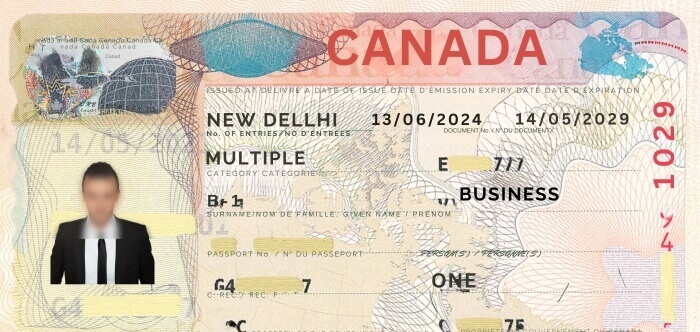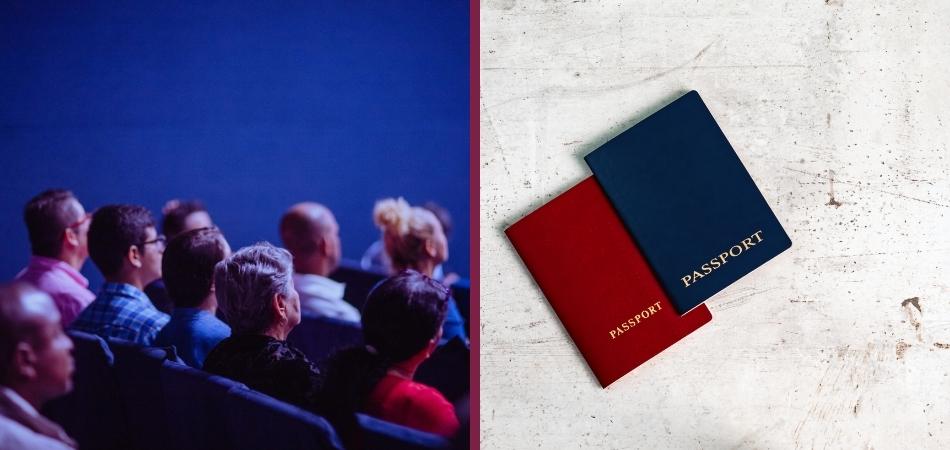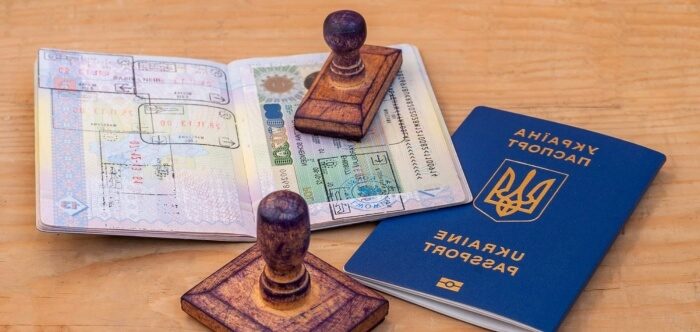Are you planning to attend a conference in Canada and wondering about the visa process from Jamaica? Navigating through the visa application procedures can often feel overwhelming, especially when you’re on a tight schedule. The crucial question – “How long does it take to get a Canadian conference visa in Jamaica?”
Typically, finds its answer in the standard processing time, which ranges from ten (10) to fourteen (14) business days. However, there’s more to it, especially for those facing urgent situations.
We’ll delve into what constitutes an emergency, how to indicate it in your application, and other tips to ensure a smooth visa acquisition journey. In this blog, we’ll guide you through the essentials of acquiring a Canadian conference visa as a Jamaican resident.
What is a Conference Visa?
A Conference Visa is a specific type of travel authorization, designed primarily for individuals looking to attend conferences, seminars, or workshops in a foreign country. This visa is essential for those participating in academic, business, or professional events internationally. It differs from tourist or business visas in its purpose and sometimes, in its application process and requirements.
When applying for a Conference Visa, applicants must typically provide details about the event, including an invitation or a registration confirmation. This is crucial for the issuing authority to verify the purpose and legitimacy of the trip. It’s not just a formality; these documents play a pivotal role in the approval process.
The duration of a Conference Visa usually aligns with the event dates, often with a short grace period before and after. This allows attendees to travel, settle in, and also explore the host country briefly. It’s tailored to ensure that visitors stay for the intended purpose and duration.
Types of Conference Visas Available in Canada
Understanding the right visa type is crucial for a smooth entry into Canada for any conference or seminar. Here, we will explore the primary categories of conference visas available in Canada, providing clarity for prospective attendees.
Temporary Resident Visa (TRV) for Conference Attendees
For most international visitors attending conferences, the Temporary Resident Visa (TRV) is the standard requirement. It is designed for those who do not hold visa-exempt status for entry into Canada. The TRV covers the duration of the conference and is ideal for academics, business professionals, or scholars. Applicants must demonstrate their intention to return to their home country post-conference.
Business Visitor Visa
If you’re participating in a conference with a business focus, the Business Visitor Visa is often the appropriate choice. This visa is suitable for those attending business conferences, trade shows, or corporate meetings. It’s crucial to note that this visa doesn’t permit engagement in paid work in Canada. The visa aims to facilitate international business exchanges while maintaining strict work regulations.
Electronic Travel Authorization (eTA)
For citizens of visa-exempt countries attending a conference in Canada, an Electronic Travel Authorization (eTA) suffices. This option is faster and less cumbersome than a traditional visa application. The eTA is electronically linked to your passport and valid for five years or until the passport expires. Remember, this only applies to citizens from countries with a visa exemption agreement with Canada.
Whether you’re a scholar, business professional, or industry expert, selecting the correct type of Canadian conference visa is pivotal for hassle-free entry. Ensure you choose the visa that aligns with your conference’s nature and your nationality’s requirements to enjoy a seamless Canadian conference experience.
Who Can Apply for a Canadian Conference Visa?
The eligibility for a Canadian Conference Visa is a crucial step for international attendees looking to participate in events in Canada. This visa caters to a specific group of travelers with the primary intention of attending conferences, seminars, or workshops.
Academic Professionals and Researchers
Academics and researchers aiming to attend or present at educational conferences are primary candidates for this visa. They must provide proof of their role in the conference, like a presentation confirmation. Their participation often involves sharing research findings or engaging in scholarly discussions. This category includes professors, lecturers, and academic researchers from various fields.
Business and Industry Professionals
Professionals from the business sector attending industry-specific conferences are also eligible for this visa. These individuals typically participate in networking events, trade shows, or industry-specific seminars. The purpose of their visit is usually to gain insights, forge partnerships, or explore new market trends. Documentation proving their involvement or interest in the conference subject is required.
Representatives of Organizations
Representatives or members of organizations who are participating in conferences, particularly non-governmental organizations (NGOs), can apply for this visa. They might be involved in workshops, panel discussions, or collaborative projects during the conference. Their role is often to represent their organization’s interests or contribute to thematic discussions. Evidence of their affiliation with the participating organization is essential.
In summary, a Canadian Conference Visa is accessible to a diverse range of professionals and academics whose primary purpose is to engage in educational, business, or organizational conferences in Canada. Whether you’re a researcher, a business leader, or a representative of an NGO, understanding your eligibility and preparing the necessary documentation is key to a successful visa application.
Requirements for Getting a Canadian Conference Visa
Securing a Canadian Conference Visa involves a meticulous process, with specific requirements that applicants must meet. Understanding these prerequisites is crucial for a successful application. This concise guide outlines the essential criteria one needs to fulfill when applying for a Canadian Conference Visa.
- Valid Passport: Applicants must possess a valid passport with at least one blank page other than the last page. The passport should remain valid throughout the duration of the intended stay in Canada.
- Conference Details: Proof of conference registration or an invitation letter is mandatory. This documentation should clearly state the purpose, duration, and nature of the conference.
- Financial Evidence: Applicants need to provide proof of sufficient funds to cover their stay in Canada. Bank statements or financial affidavits can serve as evidence.
- Travel Itinerary: A detailed travel plan including flight reservations, accommodation, and the return journey is required. This shows clear travel intentions and duration of stay.
- Photographs: Recent passport-sized photographs that meet Canadian visa photo specifications are necessary. These photos should be in color and adhere to the size requirements.
- Employment Verification: An employment letter or related documents proving the applicant’s occupation and leave of absence (if applicable) are important. These documents validate the applicant’s intent to return to their home country.
- Ties to Home Country: Documentation demonstrating strong ties to the applicant’s home country, like property deeds or family relations, is beneficial. Such evidence helps in establishing the intent to return post-conference.
- Medical Examination: In some cases, a medical examination by approved physicians may be required. This depends on the applicant’s home country and the duration of stay in Canada.
Meticulously preparing these documents and meeting each requirement is crucial for a successful Canadian Conference Visa application. Attention to detail and thorough planning can significantly enhance the chances of visa approval, paving the way for a smooth and fruitful visit to Canada for your conference.
How Long Does it Take to Get a Canadian Conference Visa in Jamaica?
For Jamaicans planning to attend a conference in Canada, understanding the timeline for obtaining a Canadian Conference Visa is vital. This process, influenced by various factors, can vary in duration. Here, we break down the expected timeframe and key elements that could impact the processing period for Jamaican applicants.
Typically, the processing time for a Canadian Conference Visa from Jamaica spans between ten to fourteen business days. However, this timeframe can fluctuate based on the volume of applications received or individual case complexities. Applicants should consider this period as a guideline rather than a guarantee, allowing extra time for unforeseen delays.
Urgent applications may be expedited under certain conditions, especially for applicants with emergencies. If facing a pressing situation, indicating this at the time of application is essential for prioritization. Nevertheless, it’s crucial to provide legitimate and verifiable reasons to qualify for expedited processing.
In addition to the processing time, applicants should factor in the time for gathering necessary documents and attending an interview if required. Early preparation, including securing invitations, financial statements, and other paperwork, is advised. This proactive approach can help minimize delays and ensure a smooth application process.
In summary, while the standard processing time for a Canadian Conference Visa in Jamaica is about ten to fourteen business days, applicants should prepare for variability. Considering potential expedited options for emergencies, alongside timely and thorough document preparation, can significantly aid in aligning with personal travel plans and conference schedules.
Factors that Affect the Duration of Canadian Conference Visa in Jamaica
Understanding the factors influencing the duration of processing a Canadian Conference Visa in Jamaica is essential for applicants. These variables can significantly impact the time it takes from application submission to decision. We will explore key factors that can affect this timeline, providing insight into what applicants might expect during their visa-processing journey.
Application Volume
Periods of high application volume, especially during peak travel seasons, can extend processing times. The Canadian embassy or consulate may experience increased pressure during holidays or summer months. This surge in applications can lead to delays, as each application undergoes meticulous scrutiny. Applicants should consider these peak periods when planning their visa application.
Complexity of Individual Cases
Some applications may present complexities that require additional review or documentation. Issues like incomplete application forms or missing documents significantly contribute to longer processing times. Additionally, if an applicant has a complicated immigration or travel history, extra scrutiny may be necessary. It is crucial for applicants to provide comprehensive and accurate information to avoid such delays.
Response to Additional Requests
The speed at which applicants respond to requests for additional information also affects processing time. If the embassy asks for further documentation or clarification, prompt responses are essential. Delays in responding can directly extend the overall processing duration. Applicants should therefore be vigilant and responsive to any communications from the visa office.
While the standard processing timeframe for a Canadian Conference Visa in Jamaica is an important baseline, various factors like application volume, individual case complexity, and response times to additional requests play significant roles. Applicants should be mindful of these aspects, planning their application with ample buffer time to accommodate potential delays. This proactive approach can help ensure a smoother visa acquisition process, aligning with conference schedules and travel plans.
Tips to Speed Up Canadian Conference Visa Processing
Knowing how to expedite this process can alleviate stress and ensure timely attendance. This guide offers practical tips to speed up the visa processing for your upcoming conference in Canada.
- Complete Applications Accurately: Ensure your visa application is filled out completely and accurately to avoid delays. Any errors or omissions can result in additional processing time.
- Gather Documents in Advance: Compile all required documents, such as proof of conference registration and financial statements, before applying. Having everything ready streamlines the submission process.
- Respond Promptly to Requests: If the visa office requests additional information, respond as quickly as possible. Delays in your response can extend the processing time.
- Apply Early: Submit your visa application well before the intended travel date. This allows ample time for processing, even in peak seasons.
- Use Reliable Courier Services: When sending documents, opt for fast and reliable courier services. This ensures that your documents reach the visa office promptly and securely.
- Check for Eligibility of Expedited Processing: In cases of emergency, check if you qualify for expedited processing and provide relevant proof. Be aware that this option is typically limited to urgent situations.
By preparing thoroughly, applying early, and responding swiftly to any requests, you can enhance your chances of a quicker processing time. This proactive approach is key to ensuring that you can attend your conference in Canada without unnecessary delays.
Final Considerations
The question of “How long does it take to get a Canadian conference visa in Jamaica?” hinges on several key factors. Standard processing times typically range from ten to fourteen business days.
However, this can vary depending on application volume, individual case complexities, and the applicant’s responsiveness to additional information requests. To navigate this process efficiently, it’s vital to submit accurate applications, prepare documents in advance, respond promptly to any requests, and consider applying early or using expedited services if eligible.
By being proactive and thorough in their approach, applicants can significantly streamline their visa acquisition process, ensuring they are well-prepared for their conference in Canada.








